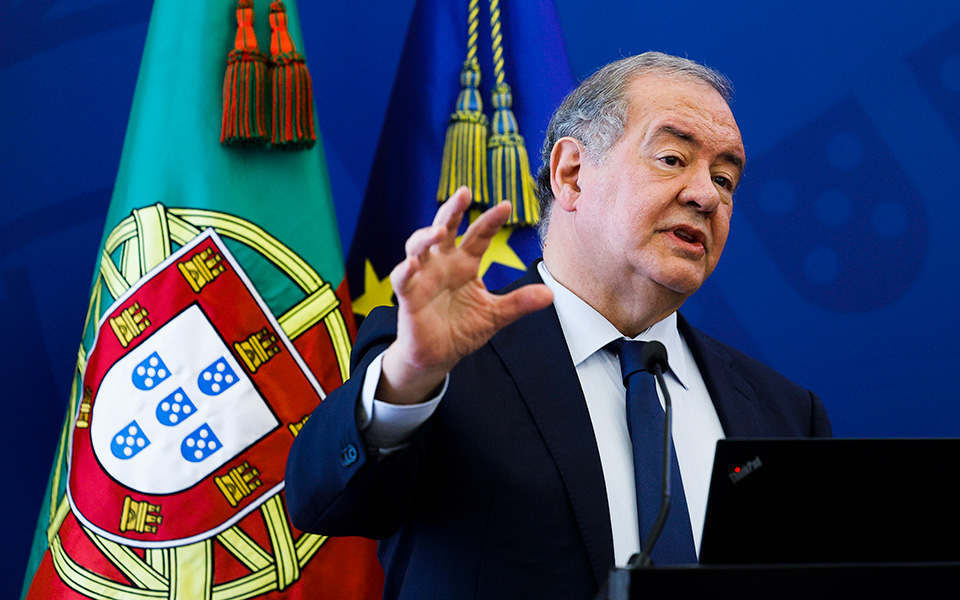Antonio Costa Silva confirms that the company will continue to pay taxes in Portugal and maintain its decision-making position in the country. He confirms that several concerned parties, including the European Union, consider the solution positive.
Economy Minister António Costa Silva confirmed yesterday, during a hearing of the Budget and Finance Committee, that the deal between the state and the German Mutares fund in Efacec “ensures that the company’s headquarters will remain in Portugal”, as well as the payment of the relevant taxes and that the company will not be divided during the next five years. He also said that “the company’s valuation is stipulated in the contract,” especially with regard to human resources – where there is an abundance of engineers.
Costa Santos was thus trying to calm the wave of doubts that attacked all opposition parties, which denounced the lack of transparency in the entire process and the accounts, or some accounts, that were not well prepared. One of them was related to costs arising from the possible closure of the Efacec operation. “We have calculated to assess the costs if Efacec goes bankrupt”: the amount of €1.7 million per month that would be necessary to pay unemployment benefits (about €20-25 million per year), which are “contributions that the company makes and will not be received”, and an amount of up to “ 3.3 million per month, that is, about 40 million per year,” all for a total amount of between 60 and 65 million euros.
Now, the company has actually paid around 100 million euros in taxes during the period it was in state hands, the Economy Minister also said, but MPs questioned the unemployment figures. Carlos Guimarães Pinto, of the Liberal Initiative, opined that it was very unlikely that Efacec’s human resources, given its qualifications, would remain on unemployment benefits for a long time. On the contrary, he stated that they are very likely to quickly find employment in other companies.
But Costa Silva did not give up: “We never accepted the break-up of Efacec, we did not accept the creation of a good Efacec company and a bad Efacec company.” He provided guarantees that the agreement would preserve jobs and decision-making status in Portugal.” In fact, he stated that this was the main focus of the government (of which he was not yet a part, as he repeatedly stated) when it took charge of the company’s recovery. Pumping about $160 million more into the company is still less than what private companies are now being asked to invest in.
He explained that all of this is supported by foreign organizations that closely follow the work. “DJ Company [Direção-Geral da Concorrência] “There are two opinions that confirm the validity of everything the state does,” Antonio Costa Silva said. Furthermore: The injection of new capital was necessary to keep the company operating and in accordance with European rules,” noting that the ministry is in possession of one of the European Commission’s letters stating that “any market operator will choose the solution.” The Portuguese state found it.” He added that the closure of Efacec would have a negative impact of between 1.5% and 2% on the GDP of the northern region.
With the questions of parties to the left of the Socialist Party remaining within the framework of doubts about the emergence of re-privatization – the PCP and the Bloco de Esquerda wanted to make clear that it was possible to restructure Efacec and remain in the public orbit – and those to the left of the Socialist Party. Moreover, the Economy Minister preferred to question the Germans’ desire to keep Efacec unchanged, intending to provide a context in which it became clear that Mutares had everything to gain from operating the Portuguese company in line with the rest of the group. This means that the eventual dismemberment of the company will be detrimental to the next owners – which is ultimately an additional guarantee of its sustainability.
The Minister of Economy admitted that the state will not be able to recover all the money it has pumped in – “Will we recover all the investment?” “I wouldn’t say that,” Costa Silva said with some dismay – but remember that a cascading mechanism ensuring that the state keeps two-thirds of the value of the sale, when it takes place – in five years or more – was the solution. This guarantees, in any case, a good deal for the state.

“Wannabe internet buff. Future teen idol. Hardcore zombie guru. Gamer. Avid creator. Entrepreneur. Bacon ninja.”

